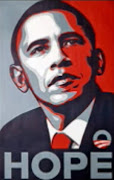Stanley Kubrick's Barry Lyndon
I watched this 3 hour movie streaming on Netflix this afternoon. I can't believe I'd never heard of it before I put it in my Instant Queue a few weeks ago. I had not planned to watch it today or anytime soon really but it was one of 30 movies on my Instant Queue that were going to stop streaming as of January 1. This was the second of the two movies off that list that I got to watch today. The fist was Ghost. I chose both via two main criteria: it was unavailable from the library so I'd have to use one of my 3 Netflix DVD slots to send for it and it was something I thought I could watch with half an eye while crocheting. Ghost fit this latter criteria because it was a multiple rewatch for me and I wanted to listen to the soundtrack more than I needed to see the story again. I chose Barry Lyndon based on the reviews complaining about its slow pace and length.
I was so wrong to think that a movie based on William Makepeace Thackeray's picaresque novel that was slow paced could be watched with half an eye. Not only did I end up having to take out and redo in the second half of the film the two rows of the baby afghan I'd accomplished in the first half, I discovered late in the film that I'd been missing a lot of story that was presented visually. It is not enough to listen to the narrator and dialog only.
Besides missing many story elements by glancing at the screen one or two out of every five seconds, I had missed a lot of the visual artistry Kubrick had given this film. Every scene was like a 18th century painting come to life and choreographed like a dance. The use of color and light was enchanting.
As enchanting as the visual elements was the musical scoring of this film with the use of many classical pieces including Handel's Sarrabande as the primary theme throughout which was given several distinct renderings according to the mood of the scenes via use of different instruments and pacing. That and several other pieces I've not yet identified by name and artist continue to haunt me hours later.
I do believe I'm going to have to send for this one after all. In order to watch it start to finish without taking my eyes off the screen for more than the occasional blink. In fact this is probably going to go on my short list of movies to own that I would watch repeatedly.
Above is the scene in which the Irish rake Barry seduces the married Lady Lyndon during a card game. Note the sparsity of dialog. I actually missed most of this scene during the movie and only got its full impact while watching this YouTube.
Below is the scene near the end of the duel that takes place about ten years after the above scene in which Barry Lyndon and his stepson Lord Bullington square off. Because this was the third of three duels that framed the story as told by Kubrick, I do believe he was trying to say something about the duel as a concept or its role in that era but I'm not clear exactly what.
Lending to the poignancy of this scene are both the memory of the duel Barry fought at a similar age to Lord Bullington and the fact that shortly before his own son with the Lady Lyndon had died in an accident and thus the death of this son in the duel would leave her bereft of both sons.
Based on the material I've read online after watching the movie, I understand that Kubrick changed the story dramatically by including this scene which was either not in the novel or had a quite different outcome and by leaving out the several decades of Barry Lyndon's life that followed in the novel. Now I'm intrigued to give reading the novel a try. I don't believe I've ever read a Thakeray. Read more...




























